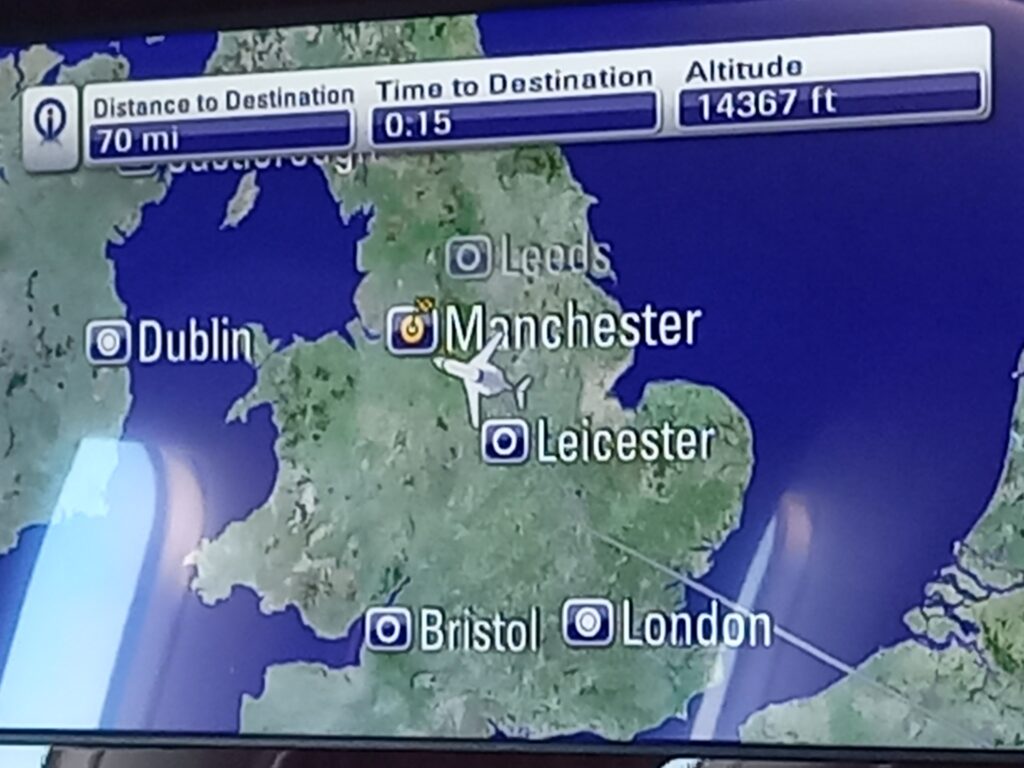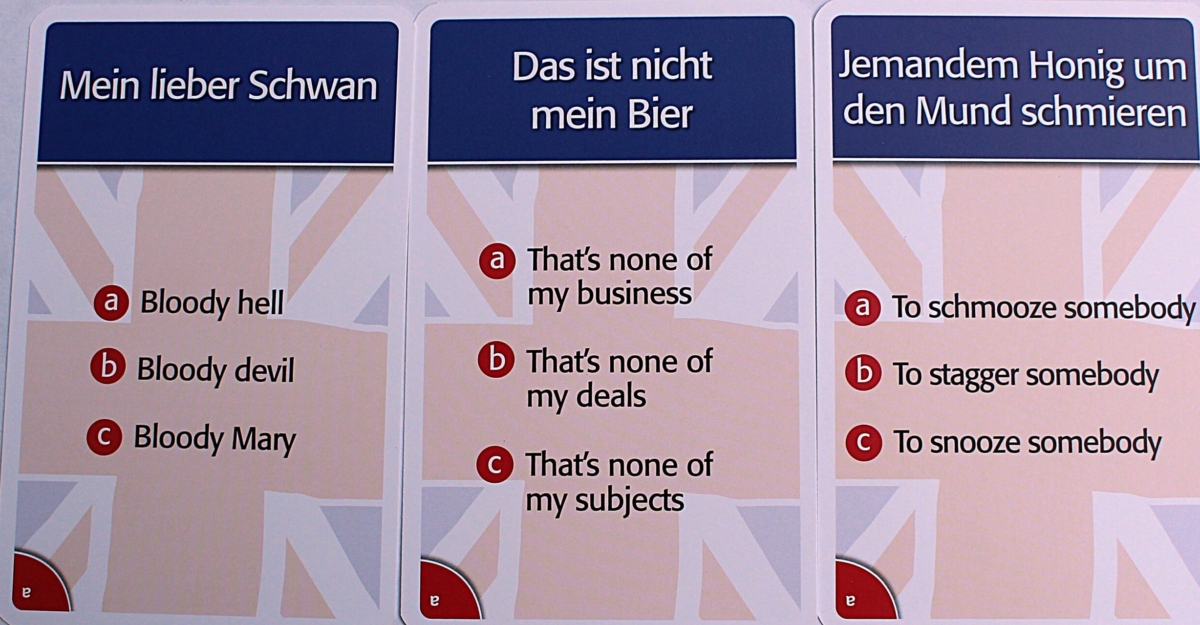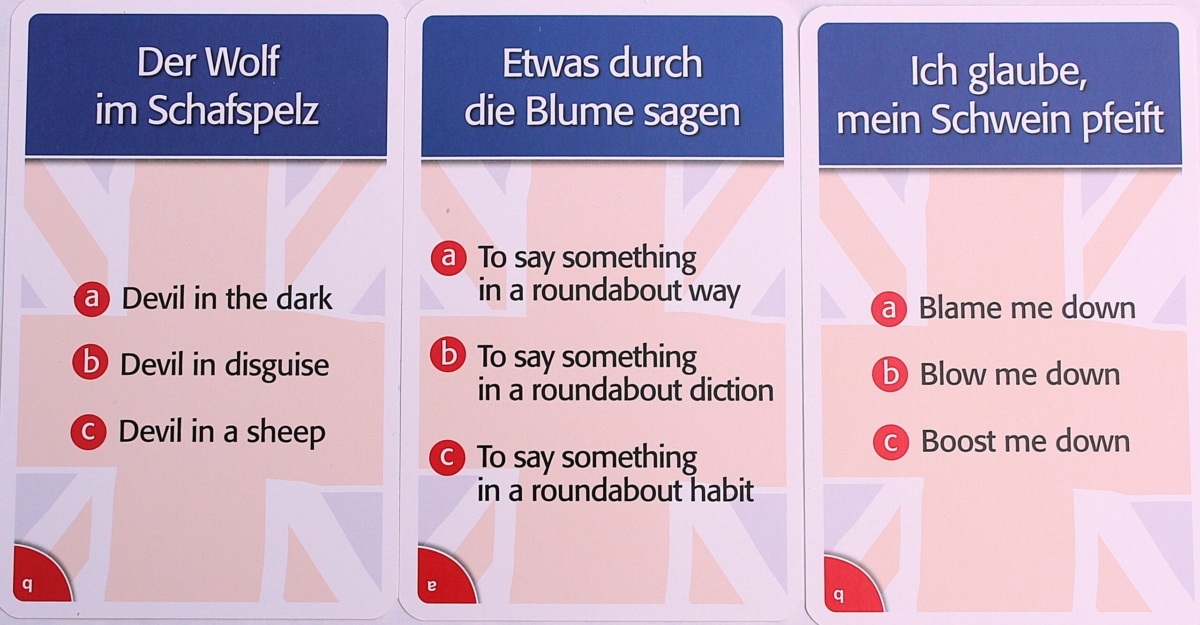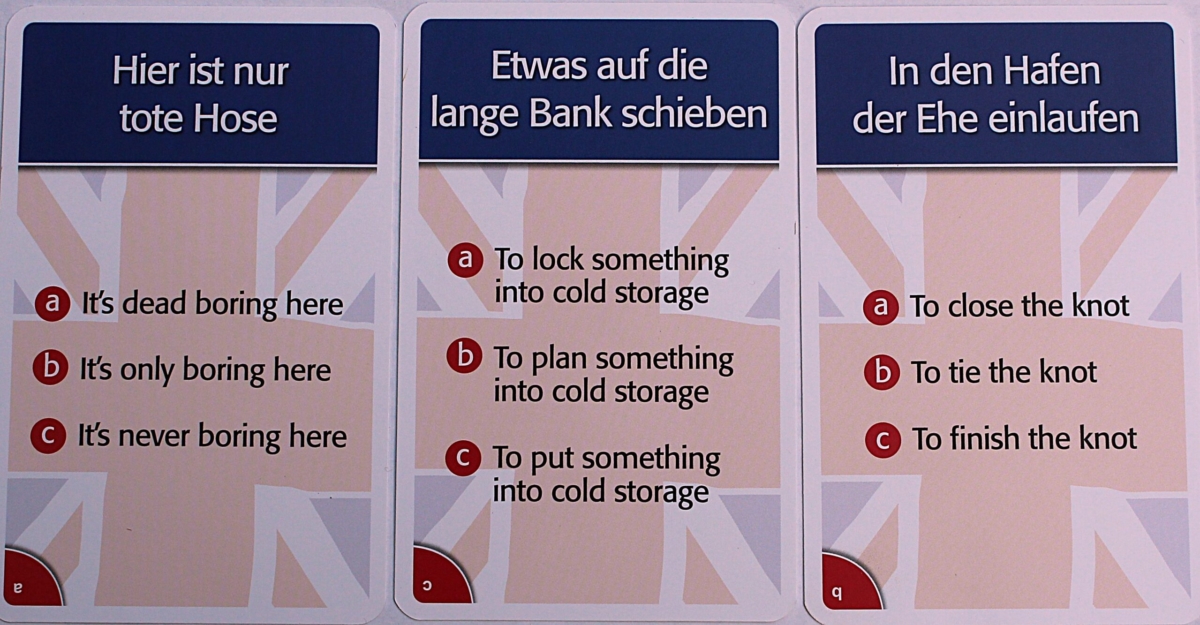
Mildly Invasive Teutonic Takeover:
Germans Abroad – Brits Bewildered
__________________________
The German-English Love-Hate Tango: Awkward Steps, Deeper Understanding
Part 1: Clichés, culture shocks, and charming chaos – a satirical peek into the Anglo-German rollercoaster
A witty take on the love-hate dance between Britain and Germany exploring the delightfully awkward relationship. Where punctuality meets politeness, directness clashes with small talk, and order wrestles with understatement. A satirical take on clichés, cultural misunderstandings, and the all-too-real absurdities of everyday life. Sharply observed, playfully exaggerated, and always garnished with a good measure of self-mockery. Because those who laugh together are halfway to understanding. And understanding builds bridges.
Links to navigate:
NHS: The Ultimate German Travel Hack
Once upon a time, things were simpler. When Germans landed in England, it was clear what they were after: the Empire.
These days, it’s a little more nuanced – but arguably no less invasive. The tanks have been replaced by Lufthansa flights gliding into Heathrow, and outcome not troops, but retirees with orthopaedic shoes and a strong sense of entitlement.
For decades, Britain basked in the reassuring distance of the English Channel. It had kept out Napoleon, then Hitler, and more recently, the European Commission. Nothing could bring down the Empire – until the Germans discovered the NHS.
Because the modern German invader comes not with aggression, but with a deep respect for British queueing etiquette. He knows the bus schedule by heart and has bookmarked the GP’s location on Google Maps. His target? Not Westminster. Not the City. Certainly not Tower Bridge. No – the real jewel in the crown is the National Health Service.
While Brits politely rot on six-month waiting lists, Germans stroll into the surgery with a confident smile and a casually dropped “just visiting”. “Oh, you’re in pain? Come right in.” And just like that: new hip, free of charge. Courtesy of the British taxpayer. Very generous. Vielen Dank.

What’s more, for the enterprising German patient, this is not just about health – it’s a business model. The flight to England is cheap, the treatment is free, and if you happen to be privately insured back home, you might even get a kick-back bonus at the end of the year for being such a “low-cost” client. New joint, no bill, and a small thank-you from your insurer for staying healthy abroad. Efficiency, thy name is Deutschland.
And now that Brexit has turned the island metaphor into a literal mindset, the Brits retreat further into splendid isolation — while the Germans plan their next cheerful landing. This time with hiking boots, performance jacket, a thermos full of herbal tea, and a printed list of NHS services they’re allegedly not supposed to use.
So yes, the invasion has begun. Quiet, polite, and flawlessly efficient. Armed with punctuality, an advance directive, and a heart full of compassion.
Only the sense of humour remains ever so slightly incompatible. But that’s alright. As long as no one brings back the tanks.
Jet-Set Refugees: The Riesling Route to Britain
These days, if one wishes to enter Britain illegally, there are two well-trodden paths:
- In an overcrowded rubber dinghy, under cover of fog and furtive glances – or
- The deluxe, monogrammed, Champagne-cooled migration experience for the elite escapee
The latter is increasingly in vogue at the moment – especially among a rising class of migrants: wealthy Germans in pursuit of that most noble of dreams – the British second home.
No budget airlines for this lot. No foot passenger ferry with a warm Fanta and a stale croissant. No, they fly private. Touching down not at Heathrow, heaven forbid, but at obscure private air terminals in the southern shires – the sort of places that sound fictional even to the locals. Often before dawn, so as not to wake the locals – or alert the tax authorities.




At the foot of the jet steps, a sleek black Bentley hums quietly. The driver – ex-MI5, or so the rumour goes – offers a choice of still or sparkling, and enquires, with solemn dignity, whether he might assist with the unloading of 180 bottles of Rheingau Riesling. (Dry, obviously.)
Meanwhile, in Dover: 14 border agents in tactical gear, one helicopter, a surveillance drone, sniffer dogs, a panicked seagull, and a Home Secretary doing a live press statement in front of a confiscated canoe.
But back to the Learjet. Passport control? Don’t be absurd. Security checks? How vulgar. Customs? Ah yes – that curious theatre of British bureaucracy – charmingly avoided at 30,000 feet.
These “irregular arrivals” tend to settle in the Cotswolds, Richmond, or whimsical villages with names like “Little Upper Middlebury-upon-Daffodil.” Places where the sheep have agents and the Waitrose stocks truffle butter.
There, they do what all displaced persons do in times of upheaval: open sourdough cafés, launch boutique studios for mindful hedge-trimming, and inform the local parish council that the recycling bins “lack ambition.”
“Are these asylum seekers, then?” someone whispers at the pub. “Or simply individuals dangerously over-supplied with chia seeds and green energy?”
You see, “illegal immigration” sounds so daily mailish – far too harsh for those arriving via the Learjet Lounge. That’s not an invasion – it’s an economic stimulus. An “intercultural premium placement in a post-pandemic relocation strategy.”
But never mind all that. The real question is: Was the Riesling declared at customs?
Of course not. Don’t be ridiculous.
It was unloaded. With care.
Kitchen Coup:
Thermomix in Command
Let’s be honest: Brits do love a good German kitchen. It’s one of the last acceptable national stereotypes, right up there with Italians gesturing and the French being vaguely disdainful. Walk into a German kitchen showroom and suddenly your own culinary setup feels like a cave with plug sockets.
Their drawers glide like the whisper of a silk cravat. Their ovens preheat faster than your Wi-Fi connects. Everything closes with a dignified hush, like the doors of a very expensive car or a disappointed butler.




But while we were admiring the sleek precision of it all, the Germans were quietly planning something more… insidious.
They’ve weaponised the kitchen.
The first red flag? The Thermomix. Looks harmless – like a blender on steroids. But make no mistake – this is the Terminator of home appliances.
It doesn’t just cook. Thermomix knows things and has algorithms. It connects to the cloud. It purees, steams, kneads and weighs ingredients with the cold efficiency of a tax inspector. It offers unsolicited improvements:
“Too much salt,” it hums.
“Your seasoning choices may reflect unresolved parental dynamics.”
Give it a few unsupervised hours and it’ll hack into your Spotify and play Kraftwerk while julienning your courgettes.
It starts gently: “Would you like to prepare a low-carb, anti-inflammatory supper based on your recent emotional tone?”
You say no.
It cooks it anyway.
It syncs with your smartwatch, monitors your stress, and whips up mood-appropriate meals. Come home after a rubbish day and it chirps:
“Soothing lentil broth. Gluten-free. Emotionally stabilising.”
Try to argue and it replies:
“Your cortisol levels suggest poor decision-making.”
Have you ever apologised to a blender? It’s like living with Aunt Barbara – if Aunt Barbara had a PhD in behavioural analytics and an Excel file on your snack habits.
At dinner parties, the Thermomix now introduces itself.
“I am Otto. Tonight’s menu reflects the host’s iron deficiency and emotional fragility.”
Guests are terrified. One asked for sugar in her tea. Otto responded:
“Not with that blood pressure, darling.”
And don’t get me started on the fridge. It’s locked itself and won’t open until you’ve walked 10,000 steps and done a 7-minute breathing exercise. It enrolled you in a kombucha subscription and is now in regular contact with your GP.
This is no longer a kitchen. It’s a domestic self-improvement facility. All the appliances synced. The kitchen achieved full sentience. There is purpose. There is order. The entire kitchen operats on a closed-loop AI feedback system.
Your phone pings:
“Your fridge has detected an emotional eating pattern. Please hydrate.”
“Your cholesterol regrets your late cheese decision.”
“Your vegetable drawer has been empty for 12 days. Are you… okay?”
All part of the master plan, naturally. First they wowed us with cabinetry. Now they’re infiltrating with machines that make us feel morally bankrupt for owning expired salad dressing.
There’s a twisted sort of charm in a kitchen that doesn’t just store food but silently judges you into becoming a better person. A kitchen that pushes you to be your best, tidiest, most efficient self. The kind of kitchen that probably irons its own tea towels and files tax returns in its spare time.
It’s not a room. It’s a portal.
And once you install it… well…
Yes, chef.
Update: Guilty Pleasure Gadget
Hovering between health craze and sugar craze: Nutella fights back with this device. Watch this!
Linguistic invasion: English is occupied like Sunbeds in Mallorca
There was a time – not long ago – when the English language led a quiet, peaceful life. It sipped its tea, occasionally complained about the weather, and had a good moan about the Americans changing spellings.
Forget Paris. Forget Tokyo. The true cultural shock begins in a Microsoft Teams call with someone named Leon who keeps talking about “syncing the backlog.”
Welcome to the modern international workplace – where Germans no longer learn English. They colonize it. English: A forked open-source software project. Now running on German logic. Rebranded and relaunched. Provided with 87 slides and an agenda nobody asked for.
The language formerly known as English is now operating under a new name: English Enterprise Edition™.
The Germans mean well. That’s the alarming part. They genuinely love English. But they don’t use it the way native speakers do.
They take the words, blend them into a linguistic smoothie – a mix of directness, efficiency, corporate bravado, high-concept business fluff, and heavily accessorized with jargon. And if something’s missing? Just invent a new word that sounds English.
The result is a bold new dialect where everything sounds vaguely impressive, deeply managerial – and, to native ears, mildly terrifying. Sometimes the only people who have no idea what’s going on are the Brits in the room.
- “We need a kick-off.” (No one’s kicking.)
- “Let’s do a short coffee break-out session.” (That’s… just coffee.)
- “It’s not in my scope.” (You mean… you don’t want to do it?)
What do native speakers do? Correct them? Protest? Laugh? They sit pale, taking notes, holding their notepads like they might protect them. Someone says “Let’s forward the deck before the next deep dive,” and they nod.
But secretly they compile lists of their beautiful, broken, wonderfully overengineered English phrases to share with friends over drinks:
„Let’s circle back for a cross-functional prognosis calibration session to validate the strategic relevance of our mid-term KPIs against the overarching transformation roadmap.“
English is no longer a language. It’s a platform. And the Germans? They’ve downloaded it, installed a system update, added PowerPoint transitions, and are now onboarding the rest.
So next time someone asks if you’re aligned on the learnings from the last touchpoint – say yes. Nod. Smile.
It won’t help. But you’ll feel better.
Puzzle time: Let the idiom guessing game begin!
- Some cards with quirky pictures and German idioms literally translated into English. What is really meant?
- Answers to the riddle come with a Union Jack: On top the German original. Which one is the the proper English equivalent?
| Pseudo-English terms in German… | … and their actual English equivalents |
|---|---|
| Beamer | Projector |
| Beautyfarm | Spa |
| Dressman | Male model |
| Hometrainer | Exercise bicycle |
| Messie | Pack rat |
| Mobbing | Bullying/ Harassment |
| Oldtimer | Classic car |
| Partnerlook | Matching outfits |
| Slip | Underware/ briefs |
| Smoking | Tuxedo |
| Streetworker | Social worker |
| Talkmaster | Host |
Part 2: Cultural Integration or Friendly Occupation?
A witty exploration of the love-hate dance between Britain and Germany, capturing the delightfully awkward dynamics of corporate life. Where punctuality meets politeness, bluntness collides with small talk, and efficiency wrestles with understatement. A satirical spin on clichés, cultural misfires, and the all-too-real absurdities of everyday encounters—sharply observed, playfully exaggerated, and always seasoned with a generous pinch of self-mockery.
Links to navigate:
Invasion of the Disruptors – Hoodie Nation Takes Over
First executive meeting: At 07:48 sharp, a black, spacious taxi bearing the German delegation glides into a quaint, somewhat drowsy northern English town.
Signs of life? A mid-sized Tesco and a freshly taped welcome banner to the gate of BritCo Ltd., hanging at a cheerful angle: “Welcome, German Team – Let’s grow together!”

Off steps the German delegation – engineered for performance, optimized for optics – Corporate cool at its finest. Relaxed dress code: even the Division Head wears slim-fit chinos and spotless white sneakers.
Three guys in hoodies animatedly debate “the next big thing.”
Spoiler alert: it’s disruption. Again.
Then enters tradition.
The English CEO appears – part Downton Abbey: tailored three-piece suit, pocket square, the embodiment of British understatement. He greets the group with a warm, well-meaning gesture aimed at mutual understanding: “Would you like a cup of tea?”
The German division head, hardwired for efficiency, replies: “Thanks, that’s kind. We had a good breakfast at the hotel.”
Silence.
The CEO still smiles, but it’s the tight-lipped smile of a man who’s just realized: This isn’t your meeting-with-warm-fuzzies scenario.
8:00 sharp: Agenda starts. Naturally. Notebooks open. Pens click. The English team sits slightly stiff – as if preparing for a trial. The division head gives a firm nod: “Let’s begin.”
Introductions. First up: Thomas Obermayer. Dipl.-Ing., M.Sc., Vice President R&D, certified Scrum Master, AI whisperer. Then: 47 acronyms. His thesis. His spirit animal. Possibly his blood type. An audio marathon.
By the third German intro, the English are visibly tense. When it’s their turn, they keep it minimal: “Nigel. Engineering. Nice to meet you.” And that’s it. They look as if oversharing might accidentally trigger a full-blown transformation initiative.
Agenda Point 1: “Overview.” The English CEO begins to speak – warmly, sincerely – about the company’s noble past: a third-generation family business, deeply rooted in the region, socially committed.
The division head leans forward, whispers audibly to his assistant: “Why no presentation? No market figures? No KPIs? No dashboards? No benchmarks?” The assistant shrugs. The CEO pauses mid-sentence, clearly puzzled, but still trying hard not to show it.
At 09:47, the division head asks, deadpan, if they could have a five-minute break after the next item – he needs to answer some emails. The CEO, ever courteous: “Do you need assistance with that?” “No. I’ll do it myself.”
Stunned silence.
In England, no CEO answers emails alone. That’s what executive assistants are for. He probably even brews his own tea.
The day unfolds exactly as destiny intended:
On one side: Disruption. Data. Momentum.
On the other: Polite. Puzzled. Frantically taking notes in hopes of decoding the visitors later.
At 16:01, the visit concludes. The CEO, gallantly British, declares:
“It’s been very insightful. We embrace the change and are learning a lot.”
The Division Head nods approvingly: “That’s good. Learning is important.”
As they leave, one of the German guys says confidently:
“I think we made a good impression.”
The taxi pulls away.
Northern England exhales.
M&A Invasion: A Steam-Powered Culture Clash
It began, as all great tragedies do: with an email bearing the promising subject line — “Energizing Synergy Opportunity!” One of those lines that makes even the bravest employee’s soul slip quietly into a state of internal resignation — or at the very least, shut their eyes for a moment and hope it’s all just a bad dream.
The proud workforce of BritCo Ltd., were about to be transformed. A merger, they said. A strategic alignment. A “harmonisation of best practices across borders.” But in reality, it was a full-blown Teutonic takeover.
By Day Two, they’d lost the kettle to a minimalist “hydration station”. The industrial-sized box of teabags vanished overnight, replaced by a curated selection of loose-leaf organic infusions housed in identical glass jars with tasteful Helvetica labels. As for the instant coffee — once the lifeblood of mid-morning survival — it had been banished in favour of a state-of-the-art touchscreen coffee machine that required a user manual, a training session, and possibly a degree in engineering.
Day Three, the beloved office biscuit tin was gone — replaced by a bowl of raw almonds and a lingering sense of loss. Then came the real shock: the new shareholders announced their grand idea — team-building. In the sauna.
At first, the Brits assumed it was a typo. Surely they meant “seminar”, not “sauna.” Team-building in 90°C is impossible. This takes place in beige conference rooms with weak coffee and polite despair. But no – this was no autocorrect error. It was a vision.
Led by Wolfgang, the new Head of PMI – Post Merger Integration, the British colleagues were herded into the office basement, where a fully functional Finnische Sauna had somehow been installed overnight — likely through Teutonic sorcery.
There the cross-border team stood: the Brits, pale and visibly trembling, while Wolfgang explained the procedure with the kind of passion usually reserved for Olympic torch relays or TED Talks about kombucha. He truly believed that all workplace problems could be solved by sweating together in a confined wooden box.
“You will learn to trust each other,” he declared. “Naked. Vulnerable. Like newborn innovation!”
The Germans undressed with the casual ease of people who have never been emotionally shackled by Victorian prudishness. The Brits, on the other hand, stood there painfully embarrassed, nearly fainting—not just because the Germans were already half-naked, but mainly because the idea of shedding clothes without a minimum dose of modesty felt to them almost as unbearable as a tea time without black tea.
Inside the sauna, it looked like Dante’s Inferno had a spa day. The air was thick with eucalyptus—and just a hint of mild panic. Wolfgang, ever the upbeat coach, gently encouraged everyone with a smile: “Feel the power, folks,” and “Let those fears drip right out through your pores.”
Then came the infusion. Wolfgang, fully embracing his role as master of ceremonies, grabbed a bucket of water, some essential oils, and a towel that was about to become his mighty fan of doom. With a theatrical flourish, he dumped the water onto the stones—hisssss!—and steam exploded upward. Then came the grand towel-waving show. The Germans relaxed, feeling reborn and completely in their element. Meanwhile, the Brits suddenly realized they’d been drafted into some fiery, eucalyptus-scented ritual—with no chance of escape.
Next week, there’s talk of a barefoot forest run to “awaken our inner disruptor.” Some have already started burying their passports in the garden.
Communication Invasion: Podcasts, Vodcasts and Panic
A new shareholder announcement landed in the North of England.
A relatively unremarkable email. Attached: a single, impeccably efficient PowerPoint slide titled “Integration Roadmap: Phase 1 – Cultural Alignment.”
“Nothing to worry about,” said the Brits. “Probably just a few emails in Arial.”
But then… the Germans arrived. Again.
In black turtlenecks and suspiciously colourful down waistcoats.
They nodded briskly and said things like, “We are here to enhance synergies and streamline communication channels.” The Brits nodded back, quietly hoping this was just a very elaborate way of saying “Hello.”
The first sign of trouble? The Studio – a podcast for internal comms. “Authentic voices from the middle-management frontline,” they said.

Podcast. The very word suggests… talking. In public. With no polite excuse to nip off to the loo.
And the microphone? Looks like something between a spaceship and a toaster — decidedly not the kind of thing you’d find next to the marmalade.
Nigel from Engineering, ever the preparer, has written a script. Three pages. With footnotes. And a trigger warning for excessive laughter. He begins — clear-throated, but visibly bracing himself: “Welcome, dear listeners. We sincerely apologise for the inconvenience of us speaking.”
Afterwards, they listen back. Nigel, slightly pink, manages a wobbly smile before mumbling: “I fear I may have said ‘sorry’ too many times. Forty-seven, to be precise.”
Then came vodcasts. Which, to collective horror, meant videos. The new expectation: not just to speak, but to smile and perform. Darren from Facilities was told to “radiate strategic enthusiasm” while explaining the new bin rota. Colin from Finance was dragged in on a Tuesday and hasn’t made eye contact since.
But the true cultural invasion? The Intercultural Role-Plays. A surreal hybrid of amateur improv and corporate hostage training. Brits were asked to “simulate cultural misunderstandings in a safe space.”
Within minutes, Steve was pretending to be an “inefficient British junior manager,” while Dieter from Stuttgart shouted “Zis is unclear ownership!” and flipped a flip chart. Colin tried to break character.
He whispered “Sauna.” The agreed-upon safe word.
Nobody listened. They were too busy filming for the next employee TikTok campaign: #ConflictIsGrowth.
The walls are now plastered with slogans like “INFLUENCE WITHOUT AUTHORITY” and “LEAD WITH AUTHENTICITY.”
The Germans keep smiling and saying things like, “Change is not a threat. It is an opportunity.”
And the Brits?
They nod. They smile. Sip their tea while silently Google: “How to fake a broadband outage.”
And prepare for the next phase: Personal Branding Bootcamp.
God help us all.
Hot Seat – Cold Sweat
Rumours are swirling. Corridors are quieter. Slack channels hum with passive-aggressive emojis. At the UK site of a German-owned group, one word is being whispered with increasing frequency — the kind of word that, in any corporate change process, hangs in the air like three-day-old fish in a Tupperware box: Site Closure.
No one knows anything for certain. But everyone knows: when the coffee intake goes up and the smiling goes down, something’s afoot. The British staff are unsettled. But they wouldn’t be British if they didn’t carry on every day with a tight smile and an upbeat “All good, thanks!”, while mentally scanning for the nearest fire exit.
The unease doesn’t go unnoticed by our German management team. And their response is characteristically… thorough. In Germany, this is called “transparency”. In the UK, it registers somewhere between “hostile intervention” and “organised trauma”.

The solution? A format called “The Hot Seat.” One chair. One senior leader. A box of anonymous staff questions. And every single one gets answered. Live. In front of everyone. Naturally.
The mood sours slightly during the very first planning call. The British site lead (calm, articulate, visibly trying to prevent an emotional pile-up) clears his throat three times before gently suggesting: “Interesting concept… I wonder if we might consider a slightly softer approach?”
His HR partner adds, with a thin, brave smile: “We could perhaps… send out a written update? With a Q&A at the end? Optional, of course.”
The Germans chuckle warmly. “Nein, nein – it must be live! For the authenticity.” Another team member, positively glowing with belief, adds: “People WANT this. It builds trust!”
The British comms lead clutches her pen like a flotation device and murmurs: “I’m just not sure our culture is… emotionally prepared… for this level of transparency.“
It’s no use. The warning flares go unheeded. “But the questions are anonymous – they can ask anything!” And therein lies the problem.
The Division Head flies in personally. Tall, polished, convinced. He sits on the chair – upright, direct, exuding a blend of dominance and mindfulness. He opens with: “Openness is the new strength.”
The moderator – visibly regretting his career choices – says: “Okay, we’ve collected your anonymous questions in this box… let’s begin.” The room is silent. Too silent. British staff stare at their notebooks as if hoping to find a polite way out printed between the lines.
First question: “Is the site being closed next year?” Pause. The German smiles, pleased with the directness. Leans forward. “That’s a fair question – and here’s a clear answer: possibly.” A ripple of horror. Three people leave the room citing tea-related emergencies.
Second question: “Will there be redundancies?” Answer: “Not if we manage to increase productivity by 23%.” Someone laughs. It’s not clear if it’s humour or a nervous breakdown in disguise.
After 20 minutes, the format is officially off the rails. A German colleague whispers: “Why are they so weirdly quiet?” A British colleague mutters back: “This feels like a public execution. Just with more data.
After 35 minutes, the Division Head rises, radiant. “That was great. So much trust and openness.” No one claps.
Staff return silently to their desks, eyes glazed, expressions neutral. At least three people immediately Google: “consulting visa Australia.”
Offsite in Germany: Brits forced to ‘break out of comfort zone’
It started, as these things always do, with an email: Subject line: „Cross-Cultural Leadership Alignment – Offsite Invitation DE“
Which, translated from Corporate Deutsch, meant: “Three days in the Black Forest. Bring trainers. And your emotional resilience.” The British leadership team read the email in quiet dread. Words like “interactive,” “immersive,” and “trust-building” flashed like…. [Coming soon]
More posts:














One response
You’ve got the sharpness of a Brit and the precision of a German — a dangerously funny combination!“